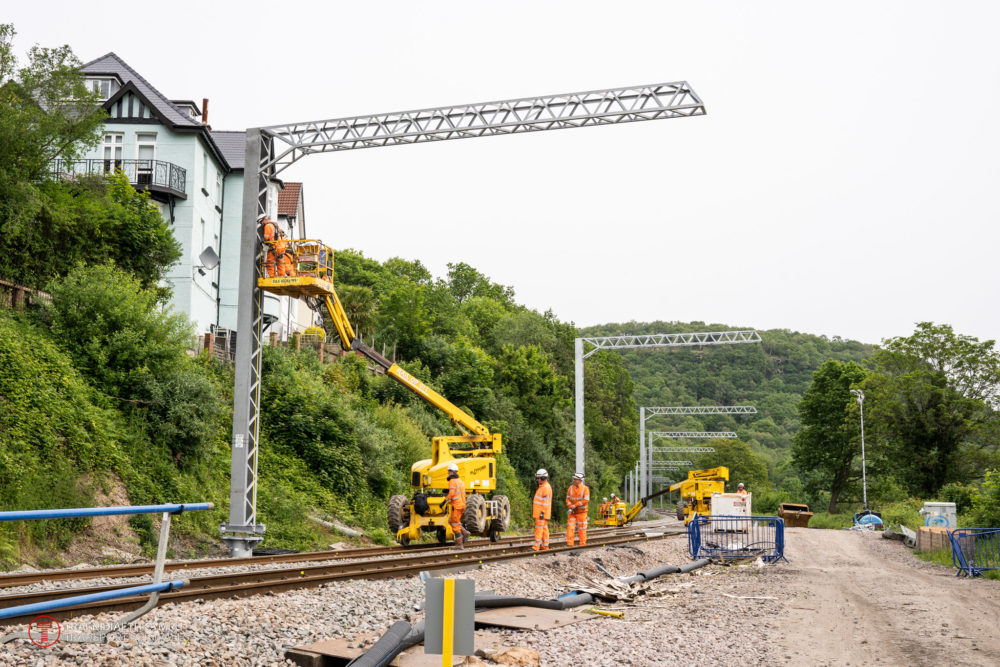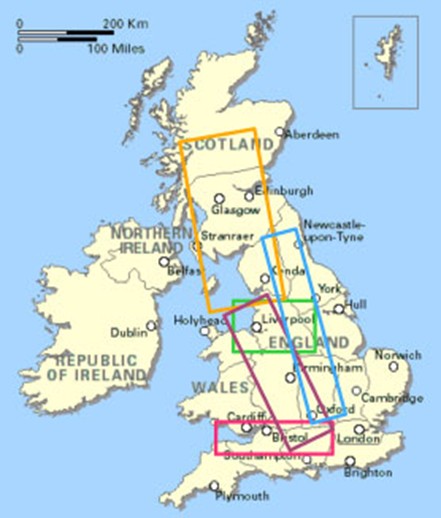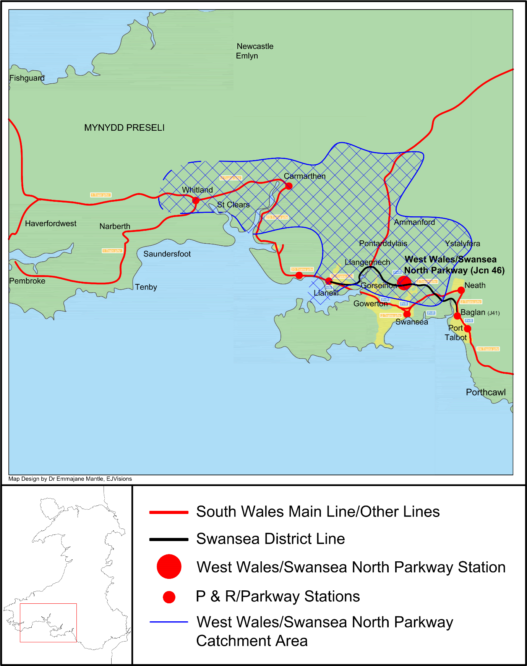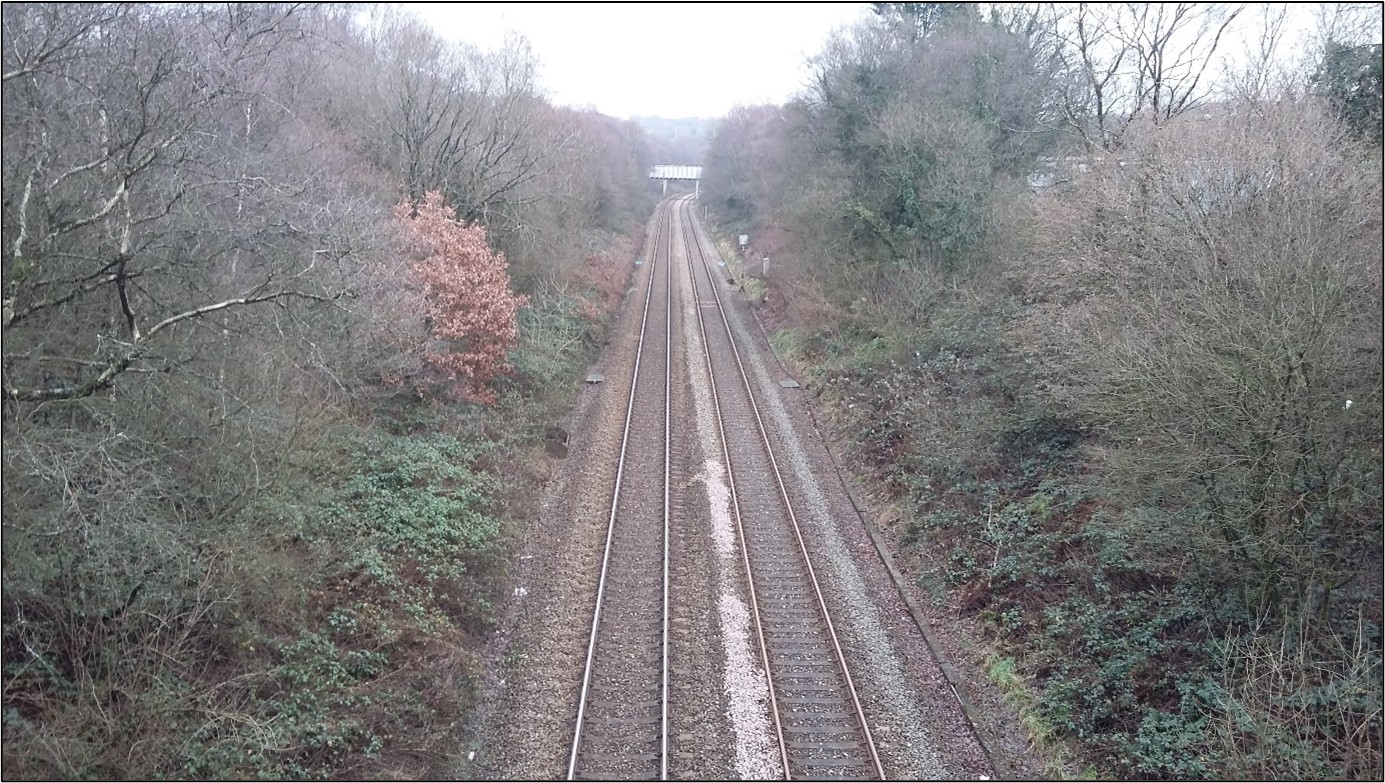Wales has never had its fair share of railway investement

Professor Stuart Cole, CBE. Emeritus Professor of Transport Economics and Policy, Prifysgol de Cymru / University of South Wales
That Wales railways have been underinvested for at least fifty years is not in question. Both Welsh and UK Government ministers have agreed that.
What is in question is whether last week’s UK ministerial rhetoric will be reflected in capital investment expenditure by HM Treasury.
Having the promised ‘ring-fenced funding’ may inform Welsh Government of the amount, but does not guarantee the investment priority reflected in the needs of the country.
An Anglo-centric railway paradigm – longer-term evidence
An economist would argue that investment has to reflect the best rate of return/value for money.
However it does not explain why the electrification of many rail routes in England were fully funded by HM Treasury (e.g. London – Norwich) while the densely populated south east Wales valleys were paid for largely by Welsh Government (total cost £1.1 bn) with only £125m coming as a direct payment from HM Treasury.
The existence of an Anglo-centric paradigm where England comes first is reflected in the celebration of 200 years of passenger rail services. The Stockton – Darlington line opened in 1825 is invariably held as the first (steam-powered) passenger train service despite the horse-drawn Swansea – Mumbles passenger railway preceding it in 1807.
The two main lines in north and south Wales were built at the beginning of railway mania (1848/50). But, as an Imperial link from London to Dublin and planned trans-Atlantic shipping from Milford, respectively; not for any direct benefit to Wales.
The London – Bristol line came earlier in 1840 to enrich business in Bristol.
Nationalisation of the railways in 1948 by the Labour government did not favour Wales in terms of modernisation. Transport department ministers and civil servants, British Railways and HM Treasury saw the Wales lines as an extension of England’s network.
A business unit within Greater British Railways will I fear lead to a repeat position.
In 1976, Cheshire and the north Wales counties bid for the electrification of the North Wales Main Line (NWML)– of that I am certain, from working on the scheme’s economic evaluation as Economic Adviser (Transportation) at Cheshire County Council.
That NWML electrification should have been a continuous part of the electrification of the West Coast Main Line to Liverpool in 1966 at a far lower real terms cost than the current estimated cost. It has still to be electrified and re-signalled despite it having a good cost benefit rate of return in 1976, a good benefit cost ratio in more recent years and would have brought economic value to north Wales.
The Anglo-centric paradigm – more recent evidence
Celebrating five years since the South Wales Main Line electrification to Cardiff completed in January 2020, the construction was to be in two tranches. First to Bristol followed later by Bristol to south Wales which many of us thought at the time would not be built at all. Reasons such as problems electrifying through the Severn Tunnel were put forward. The benefit cost ratio for the south Wales section to Swansea was well above HM Treasury minimum 2:1. However construction was halted at Cardiff.
Had continuous construction been undertaken onwards to Swansea/Carmarthen it’s real terms cost would have been considerably lower than now.
The Wales and Borders Franchise
In 2004 the structure of rail franchising in Wales came to a head. Valley Lines had been set up as the Cardiff Railway. However, the rest of Wales was served by the South Wales and West, Central Trains and North-Western franchises extending out from England. Indeed, the Central franchise, nicknamed ‘the Barmouth to Yarmouth railway,’ with Birmingham as its hub was unlikely to see the Aberystwyth line as a priority.
Given that Wales now had a government responsible for roads it seemed appropriate that train services at least should come under the Welsh Government. There was opposition from the transport establishment in London to devolving the franchising of Welsh (now TfW) train services.
I was asked to provide advice by the then minister for railways Dr Kim Howells and it was he who pushed through the change, to the Wales and Borders franchise we have today.
A high-speed line to south Wales
A proposal (2007) for a high-speed rail network covered the whole of Great Britain. Up to then HS1 has been built between London and Paris; HS2 has been extensively discussed in terms of its finances and its construction programme both of which have exceeded their original remit.

It is often forgotten that a high-speed line was proposed (2007) between London and Cardiff/Bristol prior to the electrification of the route.
The latter brought significant journey time reduction, cost £2.8 bn, but was the consolation prize.
When the paradigm did favour Wales we failed to take advantage
Ironically in 2004 the Railways Bill (Act, 2005) going through the UK Parliament offered control of rail infrastructure responsibility and Barnett consequential funding to Cymru-Wales and Scotland.
The Welsh Government turned down the offer (this column 28 July 2024).
Scotland accepted despite the Westminster government refusing to fund the backlog of capital investment.

The UK Wales Office proposed a Cardiff – west Wales train service reducing the journey time by up to 22 minutes via the Swansea District Line (2019) with a new parkway station at Felindre to serve Neath and Swansea.
Following Swansea City Council proposals for its metro use, the scheme was not pursued despite positive economic benefits.

Is the paradigm still with us?
These experiences would suggest it is still with us. Neither the First Minister nor England’s Transport Secretary announced specific capital projects. ‘Developing and agreeing a number of investment priorities in rail infrastructure across Wales to improve services for rail passengers’ in a ‘really good blueprint’. does not allay fears.
What appears to be happening is that major projects such as HS2 completion, the TransPennine (Liverpool – Leeds route) and the East-West (Oxford to Cambridge) routes will be funded directly by HM Treasury to increase its control on spending.
This may mean that Wales’ three major schemes (south Wales and north Wales main lines and the Marcher line), will remain in the Department for Transport funding ‘pot’ and share funding with England schemes.
Clarity particularly on the NWML should now be forthcoming from Chancellor Reeves.
The preferred solution for rail passengers is one where TfW takes over responsibility for funding future rail infrastructure costs (with a Barnett consequential payment), it receives a one-off payment for the capital renewal under-payment backlog and continues to operate its current routes and develop others.
That removes the Anglo-centric paradigm.
Support our Nation today
For the price of a cup of coffee a month you can help us create an independent, not-for-profit, national news service for the people of Wales, by the people of Wales.






Wales has never had its fair bloody share of anything
It is clear that only a government from a party that has its organisation in Cymru can truly represent and obtain the best for Cymru Wales. Unfortunately that is not the present labour party, nor is it reform UK, and certainly not the Tories. ‘ The Scottish SNP government has always had ‘We can do it ourselves’ and ‘Scotland can stand on its own’. Now, Northern Ireland with Sinn Fein as the primary party is showing the same confidence towards their own country. Until the people of Wales can gain our own confidence Wales will always lose. The best the… Read more »
Since the transportation of natural resources from Cymru has declined and then stopped, rail investment has declined and virtually stopped too. Any improvements to the Welsh railway service is not seen as a benefit to – England – any more. Even when there was investment it saw track run west to east, virtually no south to north track at all. It’s obvious that unless we – the people living in Cymru – invest in our own future, and not just in the railways but every aspect of our economy, we will never prosper. It’s just not in the interest of… Read more »
If new rail projects are to be suspended across the UK, that makes it even more important to review all England and Wales spending since 2010 and make good any shortfall in a population share of that funding for Wales. It’s really a very simple beancounting job.
In the unlikely event of Cymrugetting it’s fair share of funding, who will control the money? Englands priorities on rail is not cymru’s
The one and only time rail infrastructure was built in Wales en masse was when we were gang raped of our coal resource by England, to quote one Alexander Cordell’s , Rape of a Fair Country”.
Spain launched its high-speed rail (Alta Velocidad Española or AVE) programme in the late 1980s, aiming to modernise transportation infrastructure. The first high-speed rail line, connecting Madrid and Seville, opened in 1992, coinciding with the Seville Expo. This project set the stage for further expansion, as it demonstrated the benefits of speed, efficiency, and economic stimulation. Since then Spain has continued to expand its HS rail. It now has the second longest network in the world (4,000kms). High speed rail has delivered for Spain, economic growth is historically poor regions. It has helped grow tourism, created jobs directly and from… Read more »